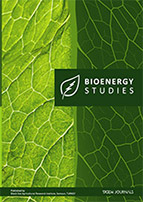Turkish Journal of Fisheries and Aquatic Sciences
2013, Vol 13, Num, 5 (Pages: 819-825)
Partial Replacement of Fish Oil with Vegetable Oils in Diets for European Seabass (Dicentrarchus labrax): Effects On Growth Performance and Fatty Acids Profile
2 Çukurova University, Faculty of Fisheries, Department of Aquaculture, 01330, Adana, Turkey
3 Mersin University, Faculty of Fisheries, Department of Aquaculture, Yenişehir Campus, Mersin, Turkey
4 Atatürk University, Faculty of Fisheries, Department of Aquaculture, Erzurum, Turkey
5 Atatürk University, Faculty of Agriculture, Department of Agricultural Biotechnology, Erzurum, Turkey DOI : 10.4194/1303-2712-v13_3_05 Viewed : 4455 - Downloaded : 3969 The study was conducted to determine the effects of alternative oil sources on growth, body composition and feed conversion of sea bass individuals. The tested oils used in the study were as follows: sesame oil (SO), canola oil (CO) and soybean oil (SBO). All tested oils were included at a 50% substitution level of fish oil and were compared with a control diet containing 100% fish oil (FO). There was no effect of diet on specific growth rate. The highest final weight was seen in fish fed SO and FO diets compared to that of fish fed CO diet and SBO diets (P<0.05). At the end of the experiment, no statistically significant difference was detected determined in whole body fatty acid composition in terms of saturated fatty acids (SFA) and polyunsaturated fatty acids (PUFA) contents (P>0.05). In the n-6 fatty acids, fish fed SBO diet contained significant amount of linoleic acids (LA, 18:2n-6) compared to that of fish other dietary treatments diets . Deposition of eicosapentaenoic acid (EPA, 20:5n-3) and docosahexaenoic acid (DHA, 22:6n-3) was identical among the dietary treatments. In conclusion, the result of the trial show that sesame oil could be used as an alternative to fish oil in European sea bass diet formulation while when fish meal content of the diet is kept relatively high as it was the case our present in this study (585 mg/g) Keywords : Sea Bass, alternative vegetable oil sources, soybean oil, sesame oil, canola oil
















